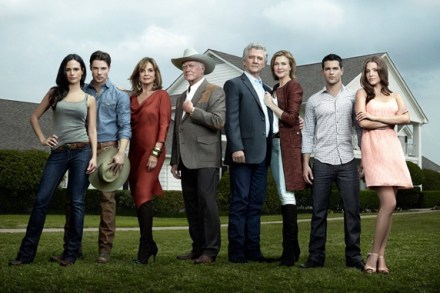Frontier dreams
When I was growing up, the Dallas theme tune was like a call to prayer. As the Copland-esque trumpets rang out, we ran to the television set. A hushed silence descended as cattle stampeded beneath the snazzy gold title credits. To watch the glamorous travails of the Ewing family from a sofa somewhere near Coventry in the 1980s was to experience the very promise of the age. Escapism, certainly. But Dallas was also about dreams. Frontier dreams. That there was a place on earth where oil men in Stetsons plotted each other’s downfall while slurping bourbon was too fabulous. That these men were married to women with shoulder pads bigger















